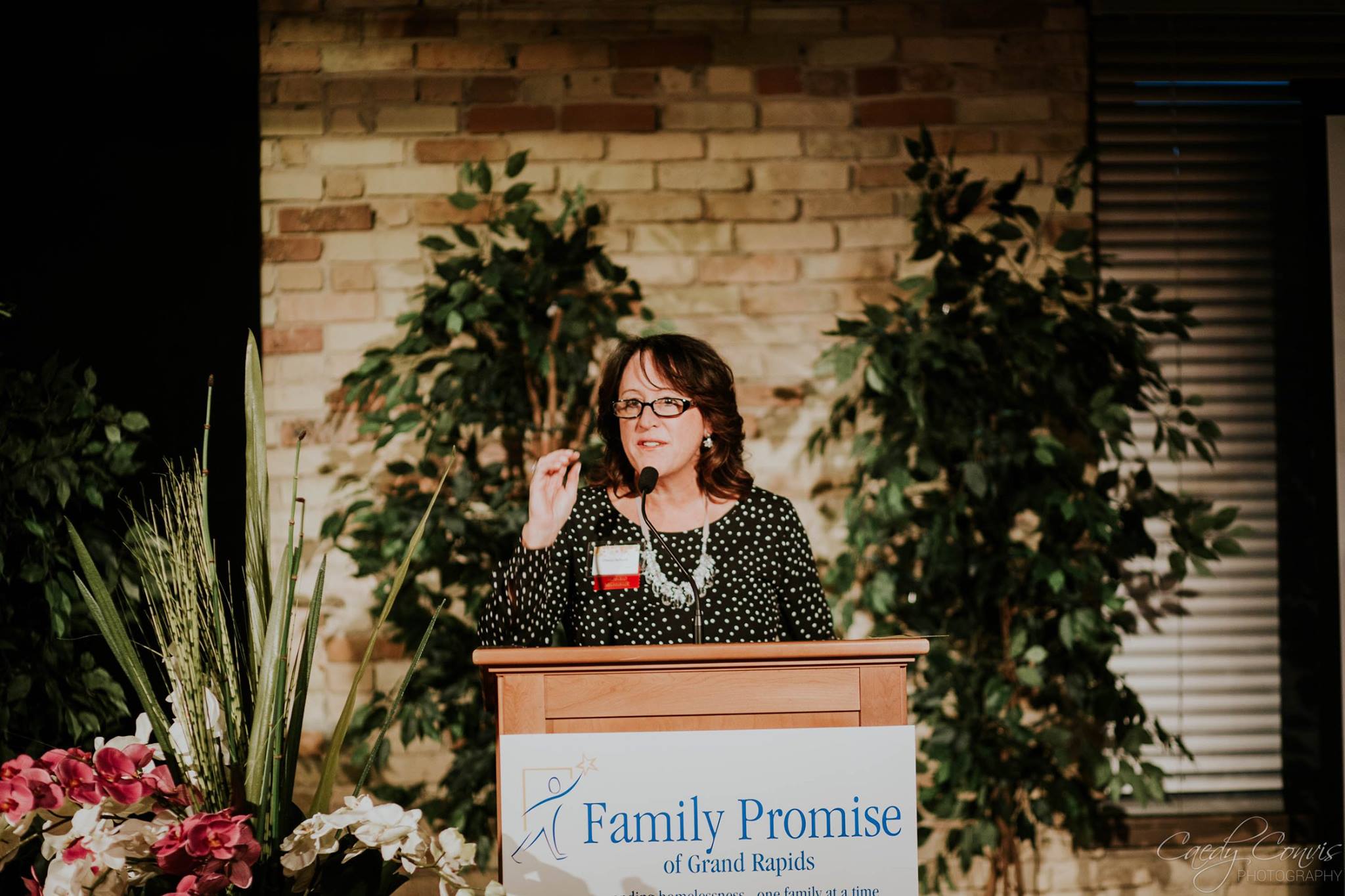
As part of our ongoing conversation on homelessness, we asked members of our Affiliate Council—a collection of some of Family Promise’s most dynamic executive directors nationwide—to share their personal thoughts and reflections on Family Promise and the issue of family homelessness. These directors are true thought leaders, using their skills and expertise to develop and implement creative solutions that are changing the lives of parents and children in their communities. Our third post is from Cheryl Schuch, Executive Director of Family Promise of Grand Rapids.
I remember it like it was yesterday. One of the early families I connected with as I started my time with Family Promise was a mom who was about my age. She had two boys at our local Christian High School who were smart and talented young men. I asked her what supports she had through work, family, church, or her boys’ school and she said to me, “No one where I work or at the boys’ school knows that we are homeless, and we need to keep it that way.” Immediately, I felt the weight of her burden and began to understand the rest of the worries that come with homelessness, beyond the loss of a house.

Family Promise of Grand Rapids
When we think of homelessness, we think of the loss of a structure…a house. But what homelessness really represents for thousands of families is being disconnected from their community and isolated. As I began to better understand the implications for children and their families, I realized the significance that an episode of homelessness has on children. This became the fight song for me, the driving force in all we do at Family Promise of Grand Rapids.
In 2012, major data started to be released on the negative impacts of serious poverty and homelessness on a child’s development. The American Academy of Pediatrics issued a policy statement saying that being exposed to homelessness, food insecurity, and extreme poverty for a child, as early as in utero, can cause significant loss of learning capacity, behavioral health disorders, and long-term health issues for the child. Many of these can become permanent changes for the child without direct intervention. This stopped me in my tracks…permanent.
If an episode of homelessness can cause a child to lose brain capacity and cause health disorders, what were the long-term implications, not only for this child, but on the future of our schools and community? Since 2012, many more studies have detailed the significant impacts of poverty and homelessness on children. Each time the warning becomes more dire and each time it is accompanied by data showing that more children are living in extreme poverty and experiencing homelessness in our country each year. The most recent study, released in October 2018’s Pediatrics (the official journal of the American Academy of Pediatrics) concludes that, “Researchers found an array of adverse effects, both for children in the prenatal homeless group and in the postnatal homeless group. The earlier homelessness occurs and the longer it lasts, the more harmful it was to a child’s health and development. These negative effects can persist into adulthood.”
At times, it is easy to get overwhelmed by the data. Overwhelmed by the seemingly endless numbers of families seeking help. Overwhelmed by the desperation of the need. I often wonder how we rise above the noise in our communities and get people to pay attention? How do we make them understand the staggering impact and cost to these children and our community?

A playroom at Grand Rapids’ Day Center
This I fear is the greatest threat facing our communities in the fight to end homelessness for children.
While many argue that it is just a lack of housing that is causing this crisis, I believe we are distracted and lack the patience for long-term investments. Our tendency to get overwhelmed leads to being satisfied with looking at short-term data and trend lines. Are the numbers going up or down? The unintended consequence of anonymous harm creeps in and we forget that these are people…parents and children. We are not fully appreciating the significance of this impact on children and are not willing to make the necessary investments now that we may not realize the benefits of for years to come.
Our staff will tell you that everything is about the children we serve. Each day we talk about how to help them quickly and in a way that won’t see them fall back into homelessness. We work immediately to offer shelter and safety for families with children who are on the street and if we don’t have enough shelter space, we strive to be a voice in the community calling others to stand up and take notice.
We need to be investing in our children and in our families. By focusing on this need now, for each child, one child at a time, we are investing in our future and in each other.

